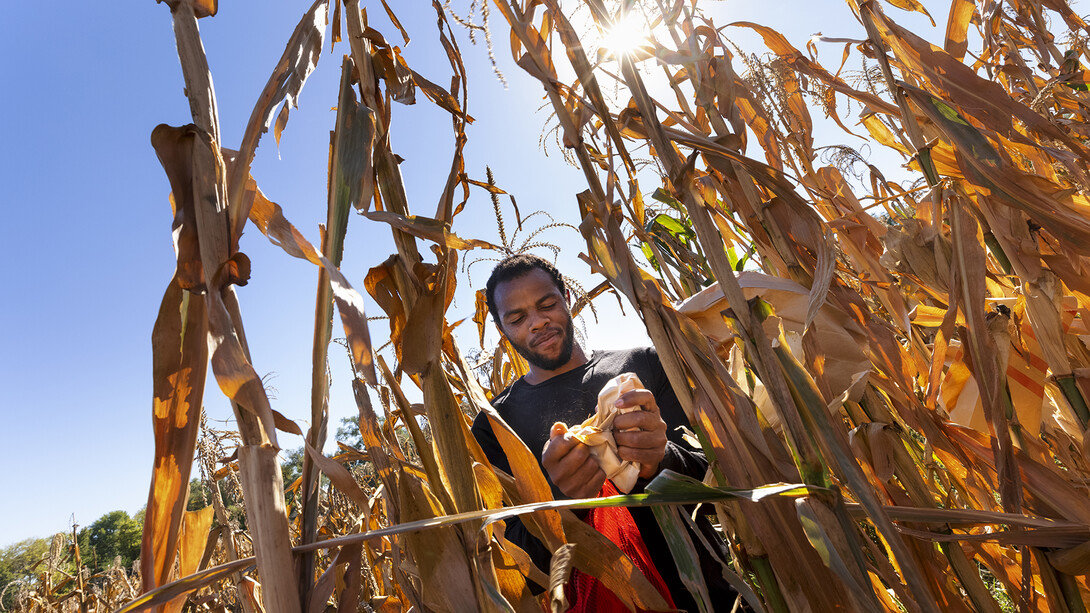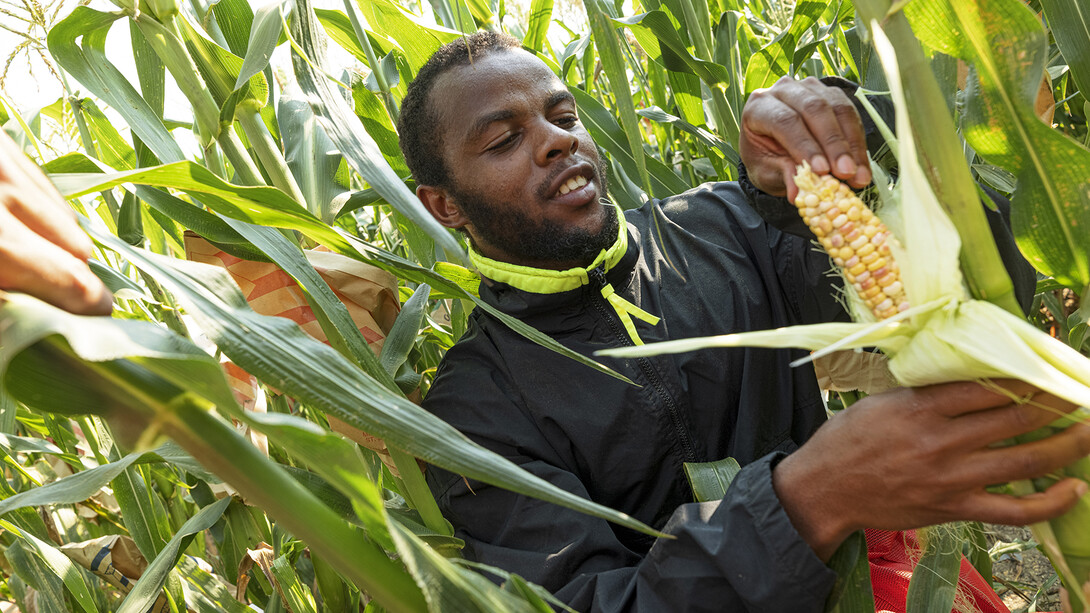
Graduate students have played key roles in David Holding’s successful development of popcorn that offers increased nutritional benefits. Nebraska Today sat down with Jonathan Niyorukundo, the current grad student in Holding’s Beadle Center lab, to discuss the work and how it has shaped his academic path and career goals.
What led you to pursue a degree in an ag-related field at Nebraska U?
I grew up in Rwanda, and came here through the partnership program with the university. I was part of the third group that came around 2017, and I earned my undergraduate degree last year. When I was in high school, college was not a priority. Then I heard about the Rwanda Scholars partnership. I applied because, why not? Agriculture employs around 80% of our population. So, I saw this program as a real opportunity to earn a degree while also working with futuristic ideas that can benefit the world.
How did you become a member of Dr. Holding’s research team?
As an undergraduate, I was focused on soil sciences. That changed when I took a plant sciences class led by Dr. Holding. I found the class and the idea of working with plants in the soil to be fascinating. I would stay after class to ask questions because it was a challenging topic and I wanted to understand everything. I wanted to be a sponge for the information. One day I asked Dr. Holding if I could work with him to get some research experience. He was looking for an undergraduate to assist with his research and it took off from there.
What is the most important lesson you have learned working in the lab?
I would say it is having a proper work ethic. You don’t need experience. But you must be willing to listen first and learn how to do things properly in the field and a lab setting. Having a proper work ethic is what it takes to do research successfully.

How has your role in the lab changed from your time as an undergraduate to now as a graduate student?
The big difference is I’m taking on more responsibility and leadership now. As an undergraduate, you focus on schoolwork first and your research experience is not as intense. Being in a lab as a graduate student, it’s more of a 50/50 split — 50% coursework and 50% in the lab. I am involved in the research every day now, seven days a week, to make sure it is moving forward. And, part of my job is to oversee our undergraduates and that we are doing the work correctly.
How have mentors like David helped you succeed here at Nebraska U?
Oh, yes, there have been so many important and beneficial people along the way. They’ve always pushed me and guided me into the right way. It’s essential to have good people around you, those who have experience and you can lean on them to learn the right way to do things.
Is this work helping define your career plans?
This research is preparing my way, but I’m not decided. I would say that there’s about a 60% chance I’ll be doing research in the future. But I’m not going to limit myself because I could also end up working in an industry. I love this research and what I’m learning here, but I feel it’s better to keep my options open.
Do you hope to take what you’ve learned here and apply it back home in Rwanda?
I do, as part of my agreement to be a part of this program is to go back to Rwanda and serve at least five years after completing my degree. There’s an institution dedicated to different areas in agricultural breeding. I could see myself as part of that, or maybe I’ll be doing some extension or teaching. But, for now, I’m really enjoying learning and doing research here in Nebraska.
Learn more about Nebraska’s impact on the popcorn industry.







